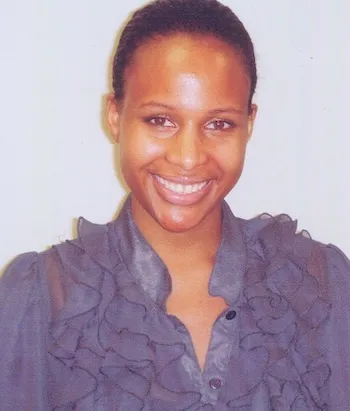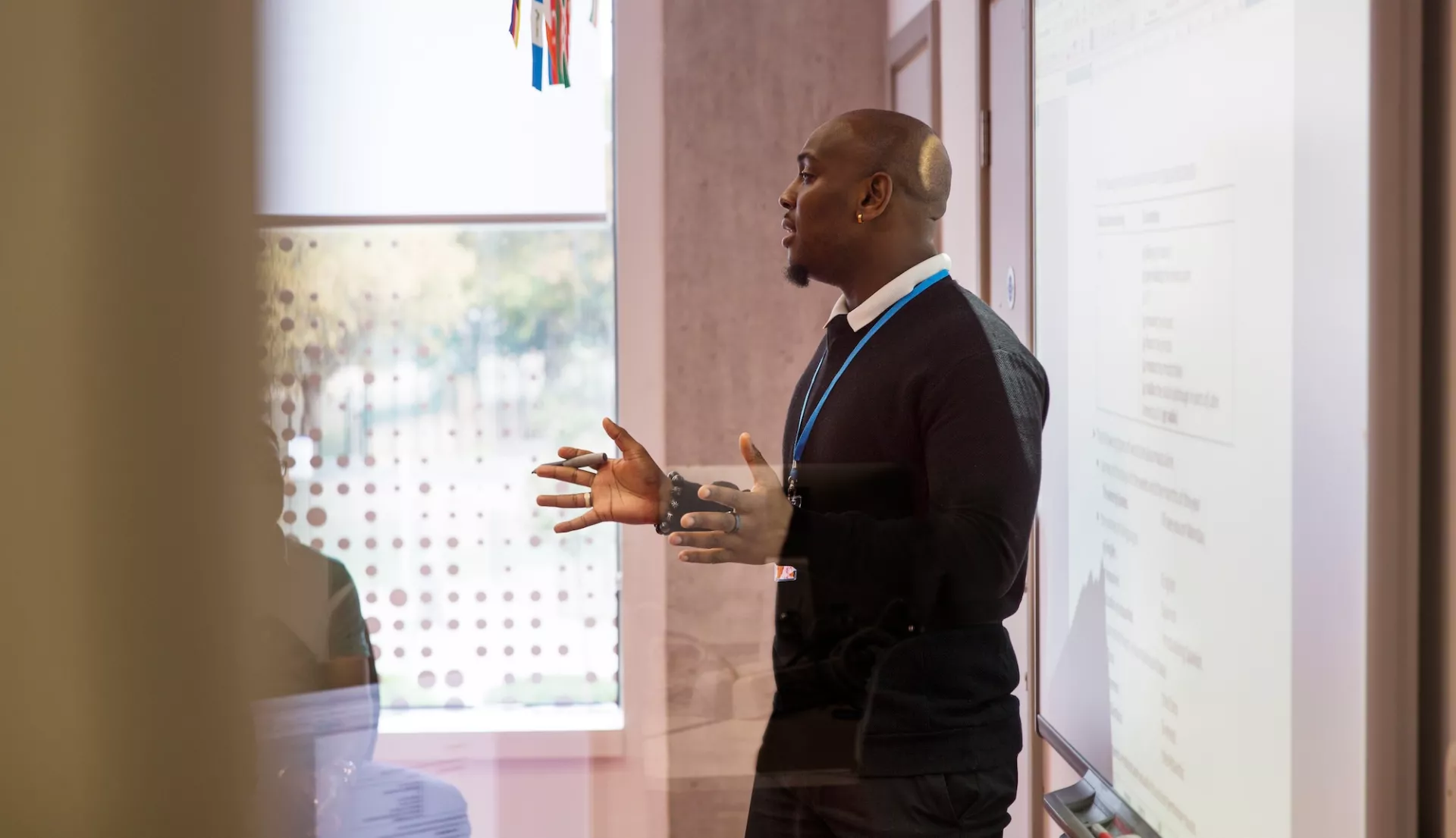“Brother Man!! Need I remind you that hustling and grinding is nothing but white supremacist capitalist patriarchy dressed up in Jordans and a little more swag? Get some rest, then call me. I’m around….”
– Margaret Swanson, Third Grade Teacher, Glassboro, New Jersey
I received that text message from fellow third-grade teacher Margaret Swanson, who saw on social media that I was juggling teaching and hosting professional development workshops at a nonstop pace.
As educators, we work incessantly. The demands of teaching, writing, leading professional development, communicating with parents, serving on school committees, and much more are an endless work reality. Additionally, low salaries in education, combined with the rising cost of rent, mortgage, groceries, childcare, health insurance, and other necessities, have pushed many educators to work second or third jobs—tutoring, summer work, and side hustles—just to survive.
The constant drive to earn more? That’s hustling.
Then there’s the unspoken expectation to constantly do more: meet with parents, organize school plays, parties, graduations, and assemblies. Often, as teachers of color, we are tasked with having students with the most challenging behavior problems in our classes. Most of those things are outside our job duties. Yet, we do them because we care. That pressure to constantly do more is the grind.
Where Did we Learn Hustling and Grind Culture?
Swanson believes it starts early. As students, today’s educators were conditioned to believe that test scores, following rules, and staying on task are attributes that lead to rewards. Now, as adults in the profession, educators often reinforce a system that values productivity over people. “It’s less about helping kids explore who they are,” Swanson says, “and more about shaping them into future workers who know how to perform and obey. Even though we call it education, a lot of it ends up being about preparing kids to fit into a world that’s already decided what success looks like.”

According to Swanson, even the language we use in education is rooted in constant striving. “Words like achievement, growth, enrichment, intervention, and career readiness are everywhere, signaling that there’s always something more to do, improve, or fix. There’s no room in that language for stillness, reflection, or enough-ness. Administrators are pushed to chase data, teachers are buried in planning and paperwork, and students are expected to perform, compete, and prepare for futures that never pause.”
Swanson thinks that rest is not laziness—it’s resistance. Prioritizing rest teaches students to value well-being over output. A thriving educator reclaims their time, protects their energy, and reimagines rest not as a luxury but as a necessity—and a form of liberation.
Swanson believes that the reality of a white supremacy capitalistic society is unequal expectations because “we have to ‘work twice as hard to be half as good,’ and that’s not just a mindset—it’s a survival strategy in a political system that wasn’t built for us (Black, Brown, women, poor people) to thrive.”
Swanson further states that “This labor market was built on the backs of kidnapped Black people, trafficked across the Atlantic Ocean, then held hostage and forced to labor as slaves on stolen land. We need to reckon with that. That legacy shows up to this day in how rest, respect, and reward are still unequally distributed.”
Rest as Resistance in NEA Spaces
To help liberate the minds and bodies of National Education Association (NEA) members from what Bob Marley famously called the “Rat Race,” several NEA conferences have introduced designated “Rest as Resistance” rooms. These spaces are now part of the NEA Conference on Racial and Social Justice (CRSJ), Minority Leadership Training (MLT) and Women’s Leadership Training (WLT), and the NEA ESP National Conference.
The concept of “Rest as Resistance” was inspired by Tricia Hersey’s Nap Ministry, which promotes rest as a form of resistance to grind culture. In the NEA event space, “Rest as Resistance” rooms offer participants a chance to decompress—whether by napping, drawing, or simply sitting in silence. These quiet spaces acknowledge the need for restoration and self-care amid the often demanding and emotionally taxing work educators do.
A strong advocate for incorporating these rest spaces at National Education Association events is Monique Atherley EdD, who works at the NEA, in the Center for Racial and Social Justice (CSRJ) as a senior program analyst and policy specialist in the Human and Civil Rights (HCR) department. Atherley champions the importance of centering healing and creating space for healing spaces in leadership and professional development.
She also believes that “Rest as Resistance” spaces at NEA events operate as third spaces where people can be in community and just be, without any performance of what conferencing may typically look or feel like—allowing participants to get what they need to refill their cups.”
In Atherley’s estimation, these types of spaces are desperately needed because the “work of education, if done correctly, is heart work and it’s hard work. It requires so much to give, but may not offer the same measure of replenishment back.”
Thus, for Atherley, rest is “needed at all levels, mental, emotional, physical, and spiritual. And it is done in different practices or methods because if we do not create those mechanisms and boundaries to guard our light and our energy, we end up becoming the unintended harm in our communities that we may have judged when we didn’t understand the toll of this work.”
Becoming a Rested Educator
When she was growing up, Turquoise LeJeune Parker, a media coordinator for Lakewood Elementary School in Durham, North Carolina, internalized rest in relation to work and productivity as one where you “go go go.” Her and her siblings' schedules were packed with school, community, and church. Parker says, “We were incredibly productive, but not very balanced at all when it came to rest. We loved what we did, but we did not balance like we should.”

This type of equating one’s worth with how much they produce or achieve is a reflection of a world that encourages us to work until we cannot work anymore. That we must work until we literally pass out. Or if we truly want something, we will give up every aspect of our lives just to make that thing happen. That giving up includes rest,” says Parker.
But, Parker says it doesn’t have to be this way, “when we are strategic, we can have balance and by balance, I mean produce, and or achieve greatness yet be resting so that we can be at full strength.” In order to achieve greatness, incorporate rest, and have balance, Parker believes that administrators need to change their mindset to know that educators can be “100% all in”, make great choices, and produce an incredible product when they take a break.
What works for Parker is this: She asks for help. She doesn’t pretend that she can do it all. And she suggests that other educators do the same. Parker says, “One of my volunteers in my library said my superpower is asking for help. That’s very new for me, but I can do it.”
She also emphasizes that educators must learn to say no, without explanation. “We can’t be everything to everybody.”
Ways to Push Back Against Hustle and Grind Culture
Here are a few ideas for building a school culture rooted in care, balance, and joy—for both educators and students:
- Incorporate yoga or mindfulness into the school day for staff and students.
- Design schools that center curiosity, care, and connection—not just compliance.
- Infuse physical activity—dance breaks, stretching, outdoor play—to offer mental rest.
- Reduce or eliminate homework and testing pressures. Stop following rigid pacing guides.
- Advocate for structural changes that center restoration, wellness, and enough-ness.
When we rest, we reclaim our humanity—and we model for students that they can, too.
Sundjata Sekou (pronounced Sund-Jata Say-Coo) is a Hip-Hop loving, “dope,” Black, male, elementary school teacher in Irvington, N.J., and NEA’s 2024 – 2025 writer-in-residence. With support from his union sisters and brothers in the NJEA Members of Color Affinity group, he received the 2024 New Jersey Education Association Urban Educator Activist Award. You can follow him on Instagram @blackmaleteacher and email him at [email protected].






